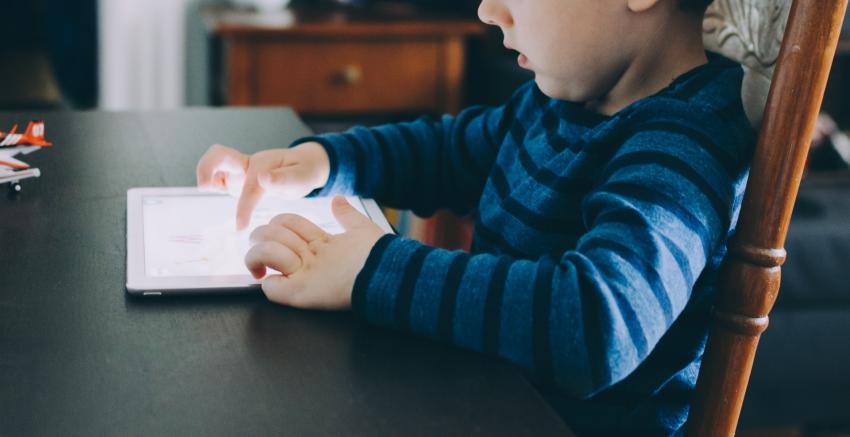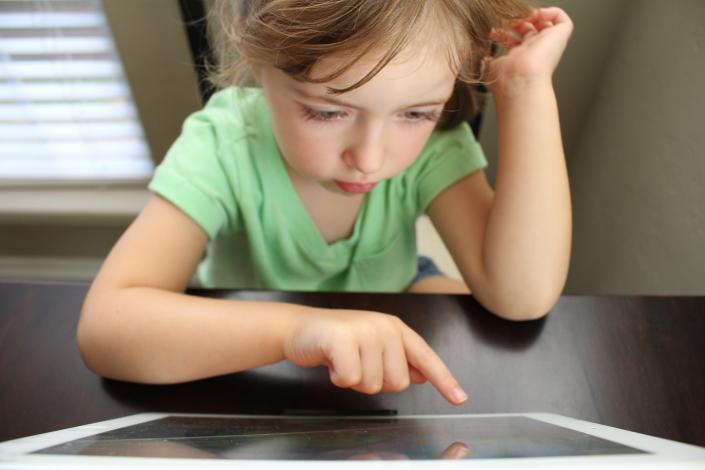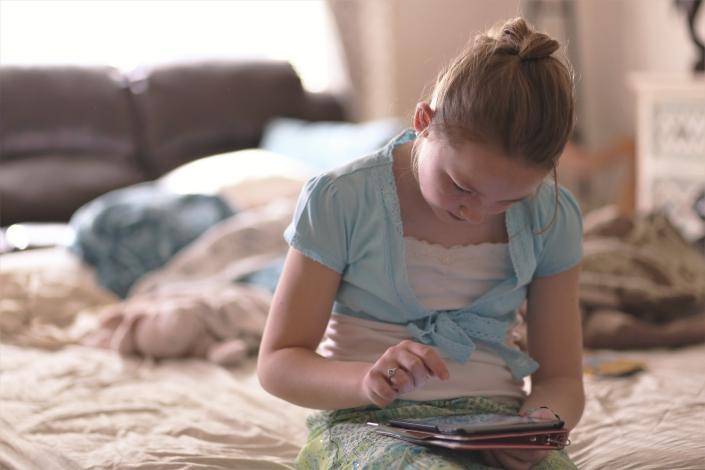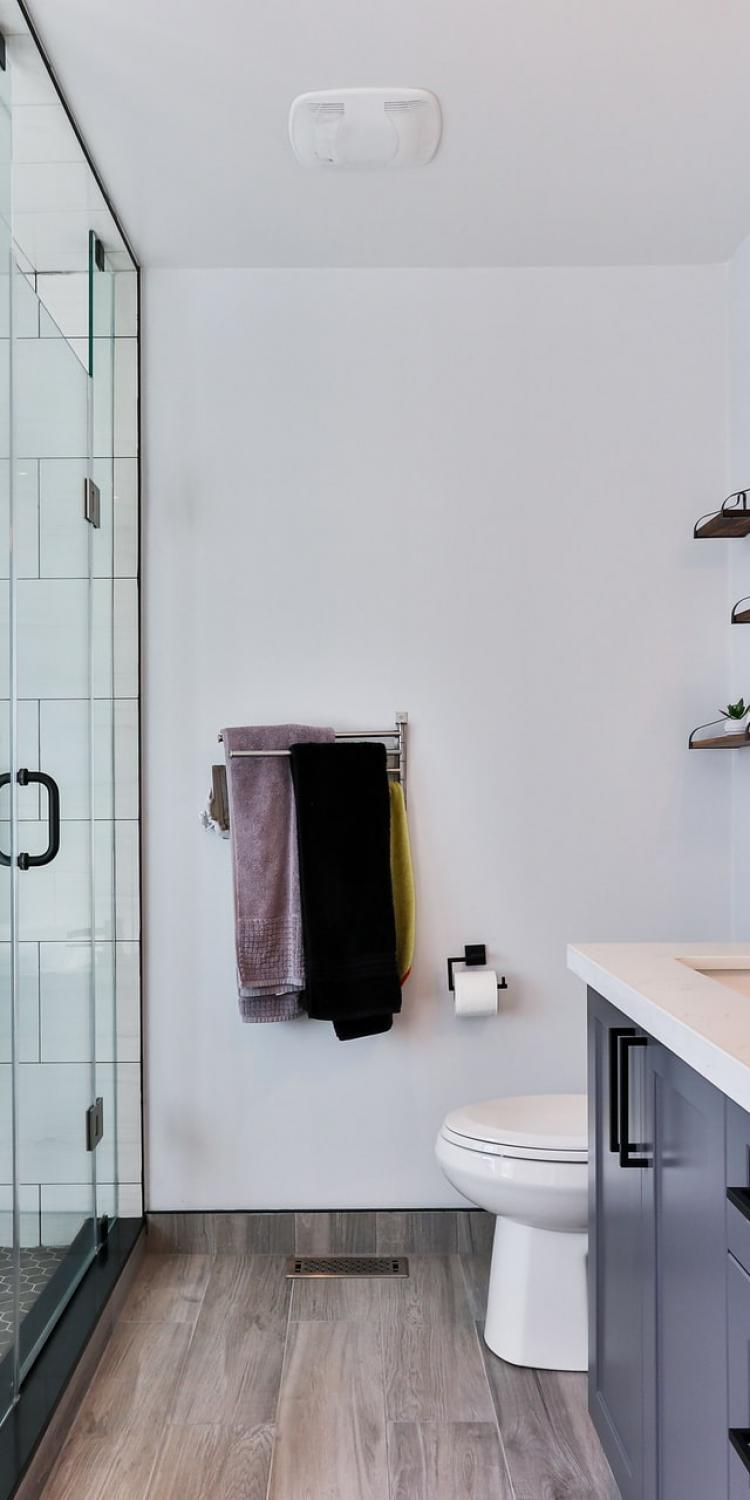Letting Your Kids Use A Tablet
This post contains references to products from one or more of our advertisers. We may receive compensation when you click on links to those products. Terms apply to the offers listed on this page. For an explanation of our Advertising Policy, visit this page.
Should you let your child use a tablet, and if so, at what age is appropriate? This is a touchy subject among many parents, but it’s likely a question you’ll ask yourself at some point.
Raising children is not an easy task by any means. Oftentimes you’ll be stressed out, and feel like you're going crazy. When your children are younger, they are going to need a lot of attention, and take more work from you. As your child gets older, the work may decrease, but your stress level may not go down.
It’s a lot of work, both physically and mentally. Thus, it makes sense that as a parent we try to find ways that we can decrease that work, and make it easier on ourselves. Here is where the discussion of a tablet enters in.
Tablets and smartphones are unbelievably powerful tools in our day and age. They can be used to get information extremely quickly. Additionally, they are simple tools for consuming media and other forms of entertainment such as games. I use my phone on a regular basis to help me as a parent, and to consume other media every day.
You will likely be faced with the question of whether or not to let your child have a tablet. We had this discussion in our home, and ultimately made a decision that we would allow our kids to have tablets, but there were many considerations in doing so.
Wait until age appropriate
You want your child to be able to understand the limits you’ll be setting around the tablet use. A young child will not be able to do so. If you hand a young child a tablet to distract them, they’ll simply consume it, and not really grasp why they’re allowed to use it at that point, and why it’s being taken away. The earlier you start a child on a tablet, the more possessive they will become of it.
Our oldest child (now 7) didn’t get a tablet until he was 5. We felt that he was old enough to understand what was allowed and what wasn’t. While he still tries to get around those restrictions, he understands that there are rules around how long he can use it, and what he’s allowed to watch or do on there.
Our 7 year old is allowed to use the tablet, but the 2 year old is not. That’s not really a big deal as the 2 year old doesn’t really care about the tablet that much anyways. He doesn’t hold much interest in it - he’d rather play with his brother, or get outside.
Limit the time using the tablet
This is extremely important. Just handing your child a tablet, and not setting any restrictions on the use of time is going to lead to a child very upset. Make sure your child knows how long they can use it when it’s given to them - either the number of minutes that they have, or the time when they must give a tablet back.
For us, tablet time is a set time everyday where the child can have the tablet if they choose. Our son often forgets about it at this point, but when he does take it, a timer is set (we use Echo/Alexa) for when the tablet time is to be done.
The amount of time that you allow your child to use the tablet is a discussion for you and your family. It can be 20 minutes per day, or it could be an hour a day. Whatever the number is, be consistent with it, and don’t let it slip into longer periods of time. By not being consistent, your child will be confused around the limits, and ultimately become upset more easily.
Limit what can be accessed on the tablet
This is also important. Make sure you know what your child has access to, and don’t let them go beyond that. We originally tried an Android tablet, but it just didn’t work very well for us. There are apps that allow you to control what apps are available for your child and other settings, but I found they require a lot of management and are just not great.
We ultimately turned to using the Amazon Fire tablets. They are cheap, but allow for a good amount of control in terms of what your child can access. While we have an iPad in our home as well, the cost of that is way more than what I’d hand to my child for regular use.The Fire tablets are extremely useful in that you can control both media and app access. Amazon does a lot of the work on that.
In our home, we also do not allow watching shows on the tablet when at home. Shows must go on the TV. There are two reasons for this: first, this leads to the 2 year old having no real interest in the tablet as the games and things don’t really capture his interest. Second, it allows us to monitor more closely what’s being watched. While Amazon does a pretty good job of limiting the content, there are still some weird shows on there that are complete junk that I don’t really want my kids watching.
Don’t regularly take the tablet in the car
Taking the tablet in the car is a sure way for your kids to always want the tablet in the car, and for them to not learn to be good on their own in the car. If you start doing this, they will get the idea that they always get the tablet in the car.
If your kids can’t sit in the car for five minutes to drive to the store, or 15 minutes to drive to wherever you’re headed, then there are other strategies to try, but I would highly recommend against a tablet for these short car rides.
Use the tablet for special occasions
The above being said, giving your child the tablet when you’re on a long car ride is completely acceptable. This is the reason we actually first got a tablet for our son - we had a 4 hour car drive for a vacation we were headed on, and we knew that he wouldn’t be able to handle the full 4 hours. The tablet only came out after other items we took with us, but it held him for the last 45 minutes of the drive.
We always take the tablet with us on plane rides, and other long trips. Even if you don’t let your child have the tablet at home, allowing them some type of entertainment in a long car ride, or on a plane will help to save your sanity (and others around you as well). Pull the tablet out when needed - it’s a safety net, not something that should be handed to them right from the start.
Conclusion
A tablet can be useful for you and your child. However, make sure you set limits and control how much your child has access to the tablet or else it will lead to more trouble than it’s worth.







